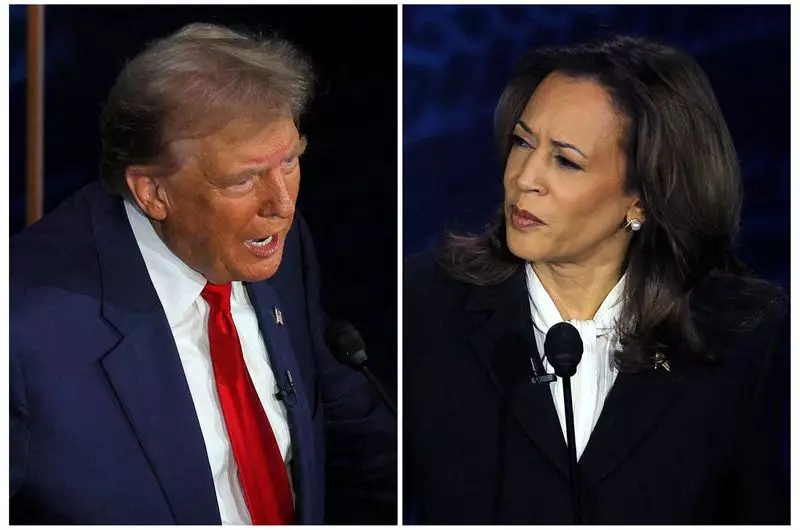The Fork in the Road: How the Upcoming U.S. Election Could Shape the Dollar’s Future

As the United States gears up for its upcoming presidential election, market analysts are closely monitoring how various outcomes could impact the value of the U.S. dollar. Political analysts posit that the election could serve as a significant turning point for the currency, suggesting that the implications of a Trump or Harris victory could create contrasting initial reactions in the foreign exchange market. However, deciphering these immediate impacts demands a deeper examination of the multifaceted relationship between political changes and economic indicators.
Should Donald Trump secure victory, many experts foresee an immediate uptick in the dollar’s value. Proponents of this perspective highlight that a Trump presidency is likely to pave the way for fiscal measures favorable to dollar strength, particularly through advancements in fiscal stimulus. Conversely, a win for Kamala Harris could trigger short-term dollar depreciation, driven by apprehension in the markets about policy changes that may emphasize social welfare over business incentives. Nevertheless, experts caution against unduly relying on these immediate reactions; they argue that factors beyond political shifts will harbor considerable influence on the dollar’s trajectory.
Analysts at HSBC pointed out that the currency markets are inherently volatile and reactive spaces. They emphasize the ever-present danger of projecting post-election outcomes too far into the future. The suggestion is clear: while initial market reactions to election results may be pronounced, these should not be interpreted as definitive indicators of long-term trends. For instance, scenarios like a divided government under a Trump presidency could indeed lead to short-term dollar appreciation; however, the lack of large-scale fiscal policies expected from a ‘clean sweep’ prevents sustained momentum.
A Democratic clean sweep could present a “sling-shot path” for the dollar, with initial weaknesses potentially unleashing later recoveries as expectations for fiscal stimulus rise. Experts predict a scenario where investors may regroup and reassess the market dynamics—what was initially thought to signal long-lasting weakness could evolve into optimism based on evolving fiscal measures. A divided government under a Harris administration is also fraught with uncertainty, characterized as a “status-quo outcome” where immediate dollar reactions are muted and, potentially, short-lived.
Historically, the dollar tends to exhibit strength during the lead-up to elections due to heightened safe-haven demand amid political uncertainty. This behavioral pattern suggests that market participants often flock to the dollar in response to fears surrounding election outcomes. Analysts predict a similar trend in the weeks leading up to the election. However, they underscore the point that amplifying this reaction into the broader context of 2025 and beyond might prove to be an erroneous strategy.
The critical takeaway here is that while political outcomes can temporarily disrupt currency markets, analysts urge vigilant reassessment against realistic fiscal, trade, and monetary expectations. As the countdown to election day continues, investors are reminded to approach the dollar’s future with tempered optimism, keeping a keen eye on the broader economic landscape rather than just the rapidly changing political scenery.





